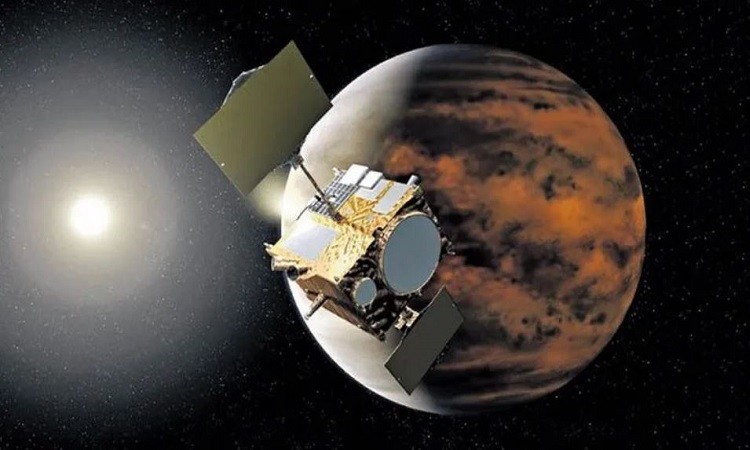
New Delhi: Just a little over a month following India's historic achievement with the Chandrayaan 3's gentle touchdown on the lunar south pole, the Indian Space Research Organisation (ISRO) has now turned its gaze towards Venus.
Unofficially dubbed Shukrayaan-1, the Venus mission has been configured, with certain payloads currently in the developmental phase, as revealed by ISRO Chairman S. Somanath on Tuesday.
With this proclamation, Mr. Somanath underscores India's celestial ambitions post-Chandrayaan 3's landing and the triumphant launch of Aditya L-1, India's mission to explore the Sun.
During his presentation at the Indian National Science Academy (INSA), Mr. Somanath outlined ISRO's plans, which encompass a mission to investigate Venus, two satellites aimed at scrutinizing space weather and its consequences on Earth, and a venture to land a spacecraft on Mars.
"Venus is an exceptionally intriguing planet. It boasts a dense atmosphere that prevents surface penetration. We remain uncertain about the surface's nature, whether it's solid or otherwise," he remarked.
Five Key Considerations of this mission:
1. Shukrayaan-1, an informal moniker, is a fusion of two Sanskrit words - 'Shukra,' signifying Venus, and 'Yaana,' translating to craft.
2. The concept of a Venus mission germinated in 2012. In 2017, India's leading space research organization initiated preliminary investigations following a 23% increase in the 2017-2018 budget allocation for the Department of Space. That same year, ISRO solicited payload proposals from research institutions.
3. The mission's objective will be to evaluate the surface and atmosphere of our "Earth's twin," dissecting its geological composition, which, as per a NASA research document, comprises a thick, noxious cloud cover. Shukrayaan-1 may also facilitate our comprehension of the correlation between solar radiation and surface particles on Venus.
4. India's Venus mission will furnish scientists and the space community with a sneak peek into the planet's past, as Earth itself was inhospitable billions of years ago.
5. NASA suggests that the prospect of life on Venus is presently rather improbable. Nevertheless, some scientists don't entirely dismiss the potential presence of microorganisms in the upper clouds, where temperatures are cooler and pressures are akin to Earth's surface. These scientists have even detected traces of phosphine, a potential marker for microbial existence, in Venus's clouds.
While India's Venus Mission is evidently making progress, ISRO is yet to unveil crucial details, including the launch date, and other pertinent project specifics.
ISRO Chairman S. Somanath Heralds Venus Mission's Potential to Illuminate Earth's Future
ISRO Embarks on Ambitious Missions to Unveil Earth's Destiny through Shukrayaan, Mangalyaan 2
ISRO Gears Up for Launching X-Ray Polarimeter Satellite in December